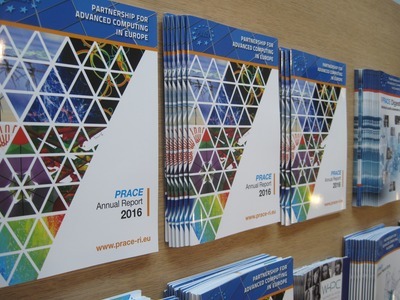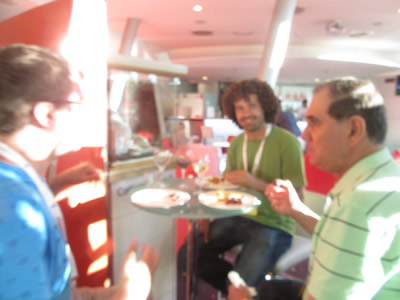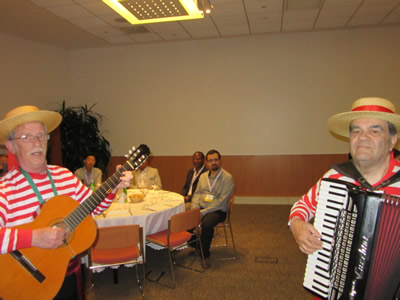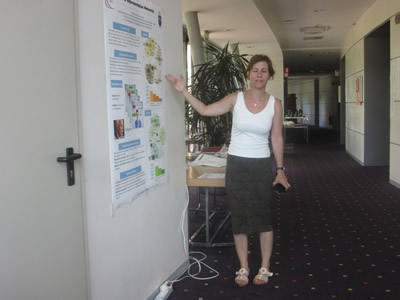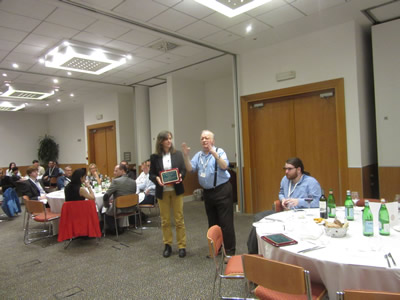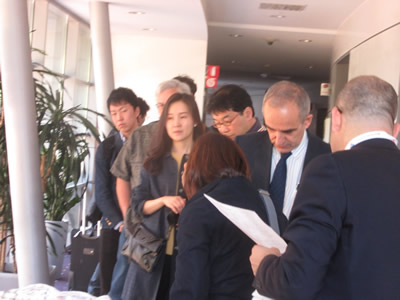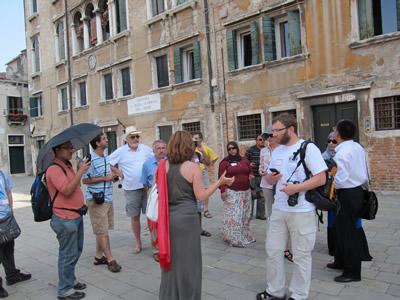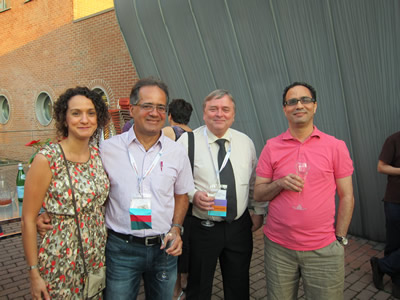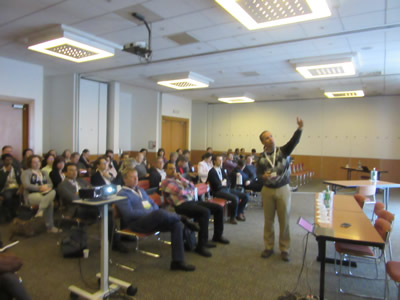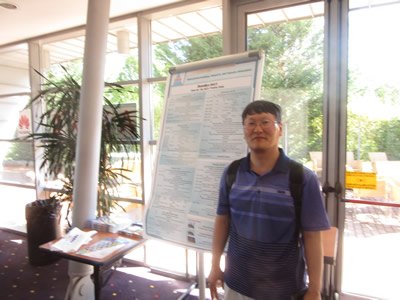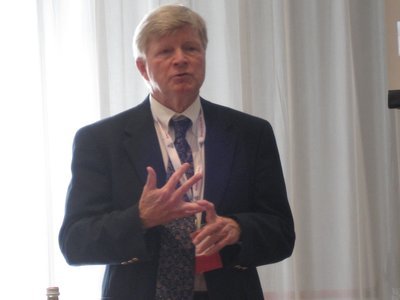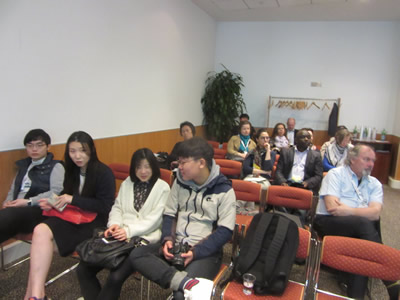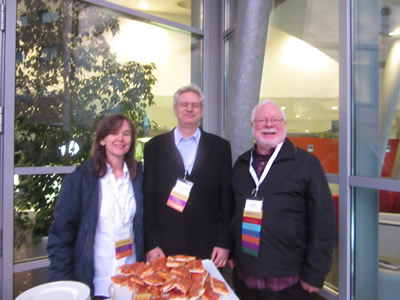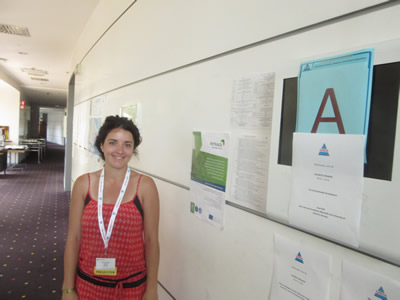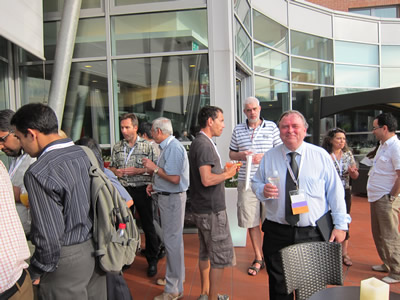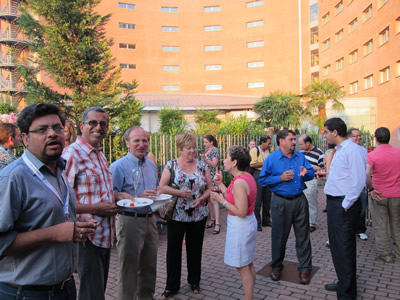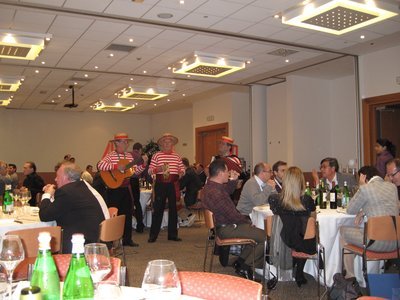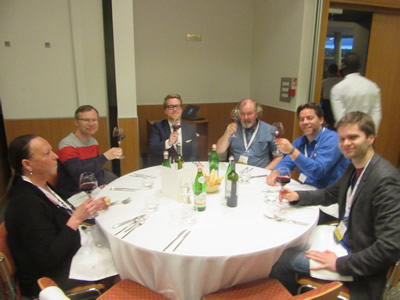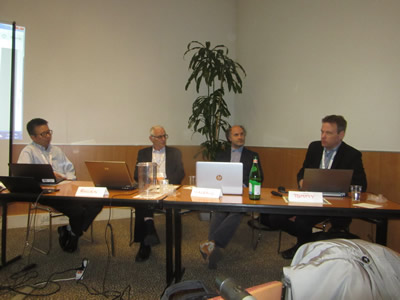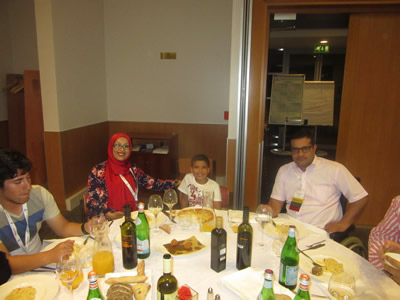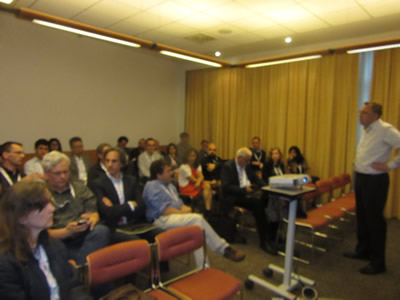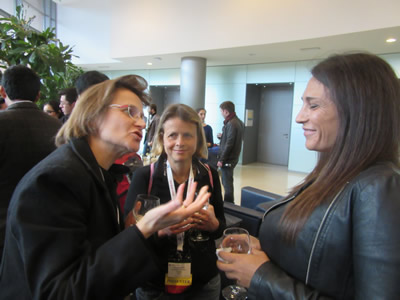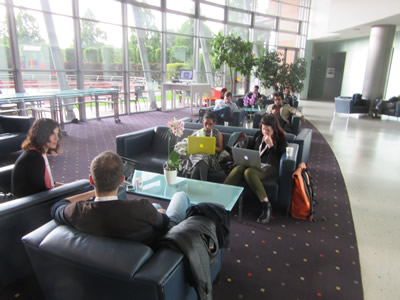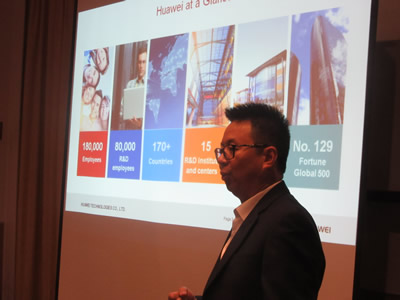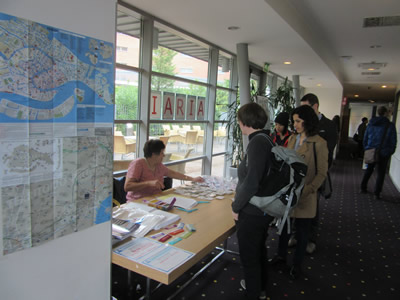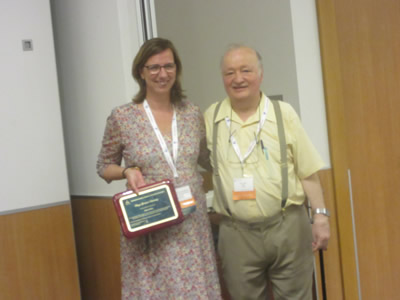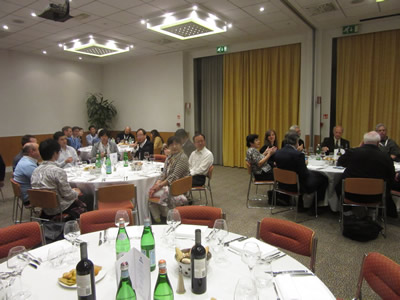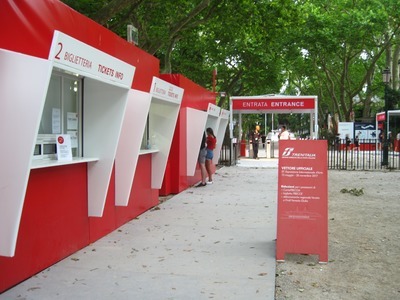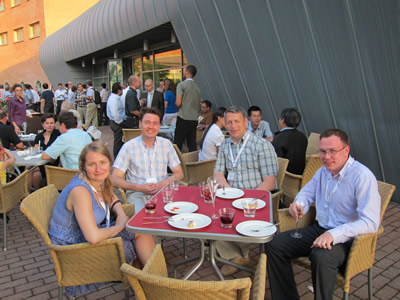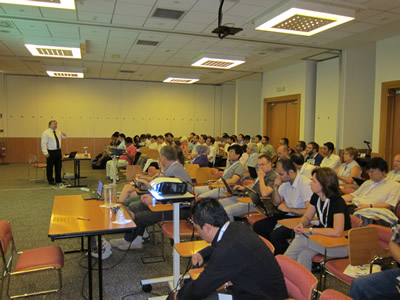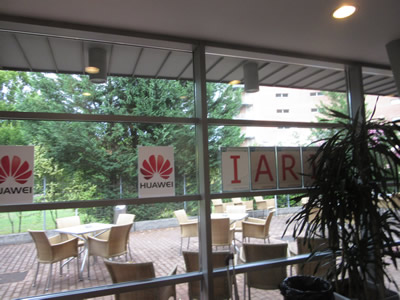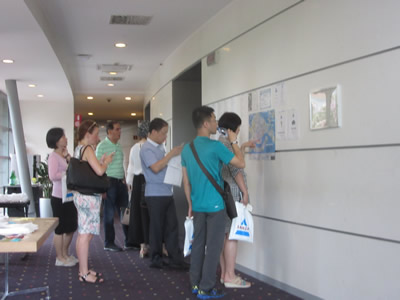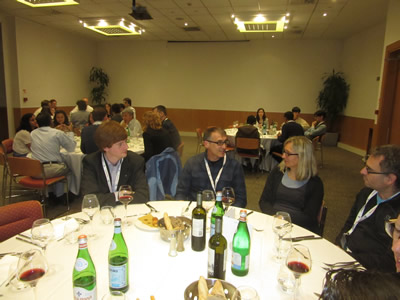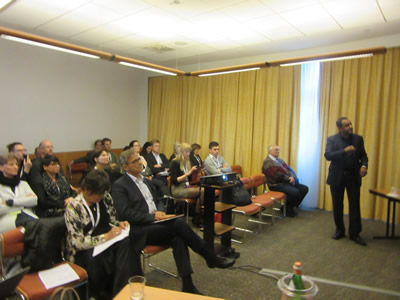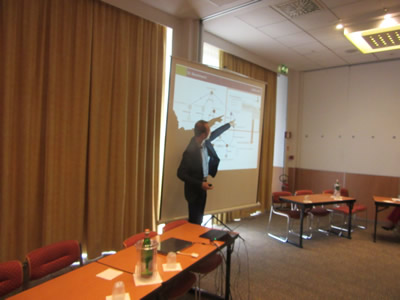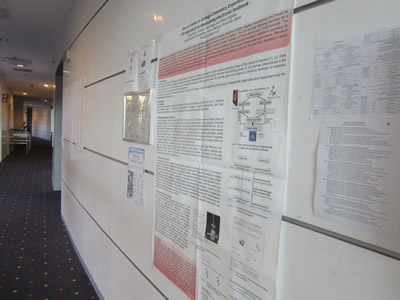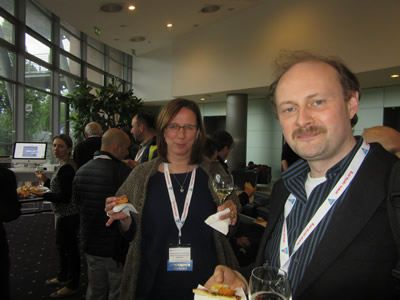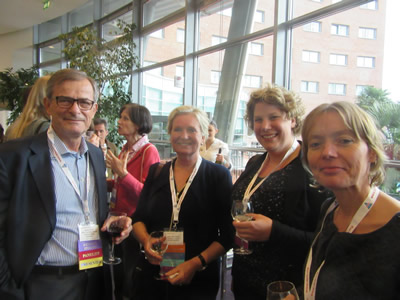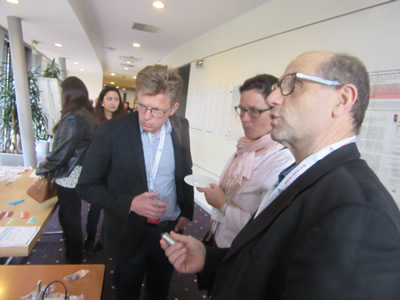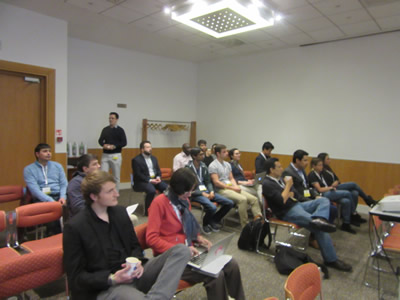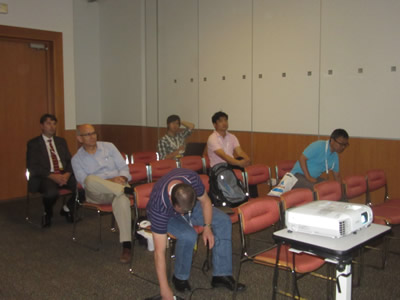BUSTECH 2019 - The Ninth International Conference on Business Intelligence and Technology
May 05, 2019 - May 09, 2019
BUSTECH 2019: Call for Papers
The term Business Intelligence (BI) covers a large spectrum of applications and technologies used to collect, store, interpret and decide on the information about company operations with the aim of helping corporate entities with a comprehensive status and knowledge on their business. BI is integrating with Warehouses (DWs), on-line analytic (OLAPS), corporate performance management (CPM), business process management (BPM), and other technology-oriented business solutions. Web technologies, semantics and ontology mechanisms are now used to mine, integrate and interpret distribute corporate data, either real-time or intermittent, by filtering noisy data, interpreting business data in context, enforcing trust and security in handling corporate data, and providing access to data from anywhere, at anytime, and via any media. The complexity, volume and intrinsic semantic of data needed for conducting business require a tailored IT infrastructure and advanced methodologies and technologies for timely building competitiveness by intelligent business decisions. With the large spectrum of emerging technologies, such as cloud computing, sensors environments, and mobility there is a need for specialized supporting tools and business/technology decisions to optimize the business process and business performance.
BUSTECH 2019 continues a series of events covering topics related to business process management and intelligence, integration and interoperability of different approaches, technology-oriented business solutions and specific features to be considered in business/technology development.
We solicit both academic, research, and industrial contributions. We welcome technical papers presenting research and practical results, position papers addressing the pros and cons of specific proposals, such as those being discussed in the standard fora or in industry consortia, survey papers addressing the key problems and solutions on any of the above topics short papers on work in progress, and panel proposals.
Industrial presentations are not subject to the format and content constraints of regular submissions. We expect short and long presentations that express industrial position and status.
Tutorials on specific related topics and panels on challenging areas are encouraged.
The topics suggested by the conference can be discussed in term of concepts, state of the art, research, standards, implementations, running experiments, applications, and industrial case studies. Authors are invited to submit complete unpublished papers, which are not under review in any other conference or journal in the following, but not limited to, topic areas.
All topics and submission formats are open to both research and industry contributions.
BUSTECH 2019 conference tracks:
Trends in business & technology
BPM and Intelligence; Crowdsourcing; Open source intelligence; Partitioning confidential resources; Hybrid Clouds Challengies; Cooling on workload management; Scale enterprise computing; Data processing in encrypted domains; Security-intelligent lifecycle management; Portability of SOA applications; Multi-tenant SaaS Applications; Big Data workflows; Data Fusion as an Enterprise Service (DFaaES); Cost models for SDN and 5G technologies; Business processes for Internet of Things (IoT); Business processes for Internet of Drons (IoD); Business Big Data analytics; Business models for Mobile environments and Smart cities; Central data centers and nano data centers; Smart factories and Industry 4.0; Compliance on the organizational factors; MapReduce for Geo-distributed Big Data; Many-objective optimization; Virtualized Datacenters
Cloud-oriented business/technical trends
Cloud adoption factors; Business transformation based on cloud services; Economical semi-cloudification; Cloud application technologies; Power consumption in Mobile Cloud computing; Cloud quality assessment; Auditability and Security in Cloud-based services; Legacy application in clouds; Protecting business processes on the cloud; Cross-layers in Cloud Workflows; Multiple data stores cloud applications; Integration and orchestration for deployment of cloud applications
BPM and Intelligence
Intelligent information systems; Rule-based business intelligence; Intelligent decisions; Business rules and ontology; Business process intelligence; Business process automation; Workflow management; Process mining; Vocabulary rules semantics; Web Intelligence; Business computational intelligence; Decision Support Systems; Web 2.0/3.0 in business intelligence (Web warehousing, integration, mining, intelligence); Applying security in BPM
Crowdsourcing
Crowdsourcing software models; Crowdsourcing theory development and designs; Crowdsourcing business models; Crowdsourcing ethics; Maintenance of crowdsourcing-based products; Innovations and open source; Data mining for crowdsourcing; Enterprise resource planning; Business to Business; Crowdsourcing-based Web technologies
Open source intelligence
Competitive intelligence; Web-based communities; User-generated content; Public data; Satellite observance; Professional and academic events; Open scientific libraries; Internet tools and resources for OSINT (Open source intelligence)
Integration and Interoperability
Empirical business research; Enterprise integration; Enterprise interoperability; Evolutionary business process; Real-time business intelligence;
Modeling and Simulation
Business process modeling and management; Business for micro, small and large enterprises; Business transactions for large-scale data; Structured and semi-structured processes; Semantics in business modeling; Multidimensional modeling and queries; Business performance management; Business process optimization; Business process simulation; Business process analysis and design; Collaborative, participative, and interactive modeling (CPI Modeling); Modeling methods and languages
Technology-oriented business solutions
Data warehouse evolution; Mobile business; Cloud-based business; Service-oriented business; Warehousing stream and sensor data; Health and remote medicine; Business-driven IT management; Data warehousing and industry applications (ERP, CRM, etc.); Business-driven Service Level Management; Business-driven dynamic provisioning; Business-driven inventory management; Business continuity management;
Business infrastructure and tools
Hierarchical and non-hierarchical business models; Project management; Business process and project management tools; Operational flexibility-agility; Online Analytical Processing (OLAP) ; Context-aware business process management
Features of business/technology development
Traceability and compliance; Business dynamics; Trust and security; Performance and scalability; Data quality and cleansing; Empirical evaluation of business processes; Reuse in business process management; Data warehousing consistency and quality; Usability and accessibility for business intelligence applications
Deadlines:
Submission | Jan 28, 2019 |
Notification | Mar 02, 2019 |
Registration | Mar 13, 2019 |
Camera ready | Mar 22, 2019 |
Deadlines differ for special tracks. Please consult the conference home page for special tracks Call for Papers (if any).
INSTRUCTION FOR THE AUTHORS
Authors of selected papers will be invited to submit extended versions to one of the IARIA Journals.
Publisher: XPS (Xpert Publishing Services)
Archived: ThinkMindTM Digital Library (free access)
Prints available at Curran Associates, Inc.
How to submit to appropriate indexes.
Only .pdf or .doc files will be accepted for paper submission. All received submissions will be acknowledged via an automated system.
Contribution types
- regular papers [in the proceedings, digital library]
- short papers (work in progress) [in the proceedings, digital library]
- ideas: two pages [in the proceedings, digital library]
- extended abstracts: two pages [in the proceedings, digital library]
- posters: two pages [in the proceedings, digital library]
- posters: slide only [slide-deck posted on www.iaria.org]
- presentations: slide only [slide-deck posted on www.iaria.org]
- demos: two pages [posted on www.iaria.org]
FORMATS
Only .pdf or .doc files will be accepted for paper submission. All received submissions will be acknowledged via an automated system.
Final author manuscripts will be 8.5" x 11", not exceeding 6 pages; max 4 extra pages allowed at additional cost.
Helpful information for paper formatting for MS Word can be found here.
There is a community provided LaTeX template: the CTAN package iaria (with full IARIA formatting rules, including IARIA citation style, but for providing citation style it is tightly bound to pdflatex+biblatex+biber). In addition, there is also iaria-lite (not bound to pdflatex+biblatex+biber, but compatible with any TeX stack; thus, it cannot provide the IARIA citation formattings, but only the titlepage and content-related IARIA formatting rules). Based on the iaria package, there is a minimal working example as Overleaf template. When you are using the LaTeX templates, please still adhere to the additional editorial rules.
Slides-based contributions can use the corporate/university format and style.
Your paper should also comply with the additional editorial rules.
Once you receive the notification of contribution acceptance, you will be provided by the publisher an online author kit with all the steps an author needs to follow to submit the final version. The author kits URL will be included in the letter of acceptance.
We would recommend that you should not use too many extra pages, even if you can afford the extra fees. No more than 2 contributions per event are recommended, as each contribution must be separately registered and paid for. At least one author of each accepted paper must register to ensure that the paper will be included in the conference proceedings and in the digital library, or posted on the www.iaria.org (for slide-based contributions).
CONTRIBUTION TYPE
Regular Papers (up to 6-10 page article -6 pages covered the by regular registration; max 4 extra pages allowed at additional cost- ) (oral presentation)
These contributions could be academic or industrial research, survey, white, implementation-oriented, architecture-oriented, white papers, etc. They will be included in the proceedings, posted in the free-access ThinkMind digital library and sent for indexing. Please submit the contributions following the instructions for the regular submissions using the "Submit a Paper" button and selecting the appropriate contribution type. 12-14 presentation slides are suggested.
Short papers (work in progress) (up to 4 pages long) (oral presentation)
Work-in-progress contributions are welcome. These contributions represent partial achievements of longer-term projects. They could be academic or industrial research, survey, white, implementation-oriented, architecture-oriented, white papers, etc. Please submit the contributions following the instructions for the regular submissions using the "Submit a Paper" button and selecting the contribution type as work in progress. Contributors must follow the conference deadlines, describing early research and novel skeleton ideas in the areas of the conference topics. The work will be published in the conference proceedings, posted in the free-access ThinkMind digital library and sent for indexing. For more details, see the Work in Progress explanation page. 12-14 presentation slides are suggested.
Ideas contributions (2 pages long) (oral presentation)
This category is dedicated to new ideas in their very early stage. Idea contributions are expression of yet to be developed approaches, with pros/cons, not yet consolidated. Ideas contributions are intended for a debate and audience feedback. Please submit the contributions following the instructions for the regular submissions using the "Submit a Paper" button and selecting the contribution type as Idea. Contributors must follow the conference deadlines, describing early research and novel skeleton ideas in the areas of the conference topics. The work will be published in the conference proceedings, posted in the free-access ThinkMind digital library and sent for indexing. For more details, see the Ideas explanation page. 12-14 presentation slides are suggested.
Extended abstracts (2 pages long) (oral presentation)
Extended abstracts summarize a long potential publication with noticeable results. It is intended for sharing yet to be written, or further on intended for a journal publication. Please submit the contributions following the instructions for the regular submissions using the "Submit a Paper" button and selecting the contribution type as Extended abstract. Contributors must follow the conference deadlines, describing early research and novel skeleton ideas in the areas of the conference topics. The work will be published in the conference proceedings, posted in the free-access ThinkMind digital library and sent for indexing. 12-14 presentation slides are suggested.
Posters (paper-based, two pages long) (oral presentation)
Posters are intended for ongoing research projects, concrete realizations, or industrial applications/projects presentations. The poster may be presented during sessions reserved for posters, or mixed with presentation of articles of similar topic. A two-page paper summarizes a presentation intended to be a POSTER. This allows an author to summarize a series of results and expose them via a big number of figures, graphics and tables. Please submit the contributions following the instructions for the regular submissions using the "Submit a Paper" button and selecting the contribution type as Poster Two Pages. Contributors must follow the conference deadlines, describing early research and novel skeleton ideas in the areas of the conference topics. The work will be published in the conference proceedings, posted in the free-access ThinkMind digital library and sent for indexing. 8-10 presentation slides are suggested. Also a big Poster is suitable, used for live discussions with the attendees, in addition to the oral presentation.
Posters (slide-based, only) (oral presentation)
Posters are intended for ongoing research projects, concrete realizations, or industrial applications/projects presentations. The poster may be presented during sessions reserved for posters, or mixed with presentation of articles of similar topic. The slides must have comprehensive comments. This type of contribution only requires a 8-10 slide-deck. Please submit the contributions following the instructions for the regular submissions using the "Submit a Paper" button and selecting the contribution type as Poster (slide-only). The slide-deck will be posted, post-event, on www.iaria.org.
8-10 presentation slides are suggested. Also a big Poster is suitable, used for live discussions with the attendees, additionally to the oral presentation.
Presentations (slide-based, only) (oral presentation)
These contributions represent technical marketing/industrial/business/positioning presentations. This type of contribution only requires a 12-14 slide-deck. Please submit the contributions following the submission instructions by using the "Submit a Paper" button and selecting the contribution type as Presentation (slide-only). The slide-deck will be posted, post-event, on www.iaria.org.
12-14 presentation slides are suggested.
Demos (two pages) [posted on www.iaria.org]
Demos represent special contributions where a tool, an implementation of an application, or a freshly implemented system is presented in its alfa/beta version. It might also be intended for thsoe new application to gather the attendee opinion. A two-page summary for a demo is intended to be. It would be scheduled in special time spots, to ensure a maximum attendance from the participants. Please submit the contributions following the submission instructions by using the "Submit a Paper" button and selecting the contribution type as Demos. The Demos paper will be posted, post-event, on www.iaria.org.
Tutorial proposals
Tutorials provide overviews of current high interest topics. Proposals should be for 2-3 hour long. Proposals must contain the title, the summary of the content, and the biography of the presenter(s). The tutorial slide decks will be posted on the IARIA site.
Please send your proposals to tutorial proposal
Panel proposals
The organizers encourage scientists and industry leaders to organize dedicated panels dealing with controversial and challenging topics and paradigms. Panel moderators are asked to identify their guests and manage that their appropriate talk supports timely reach our deadlines. Moderators must specifically submit an official proposal, indicating their background, panelist names, their affiliation, the topic of the panel, as well as short biographies. The panel slide deck will be posted on the IARIA site.
Please send your proposals to panel proposal

